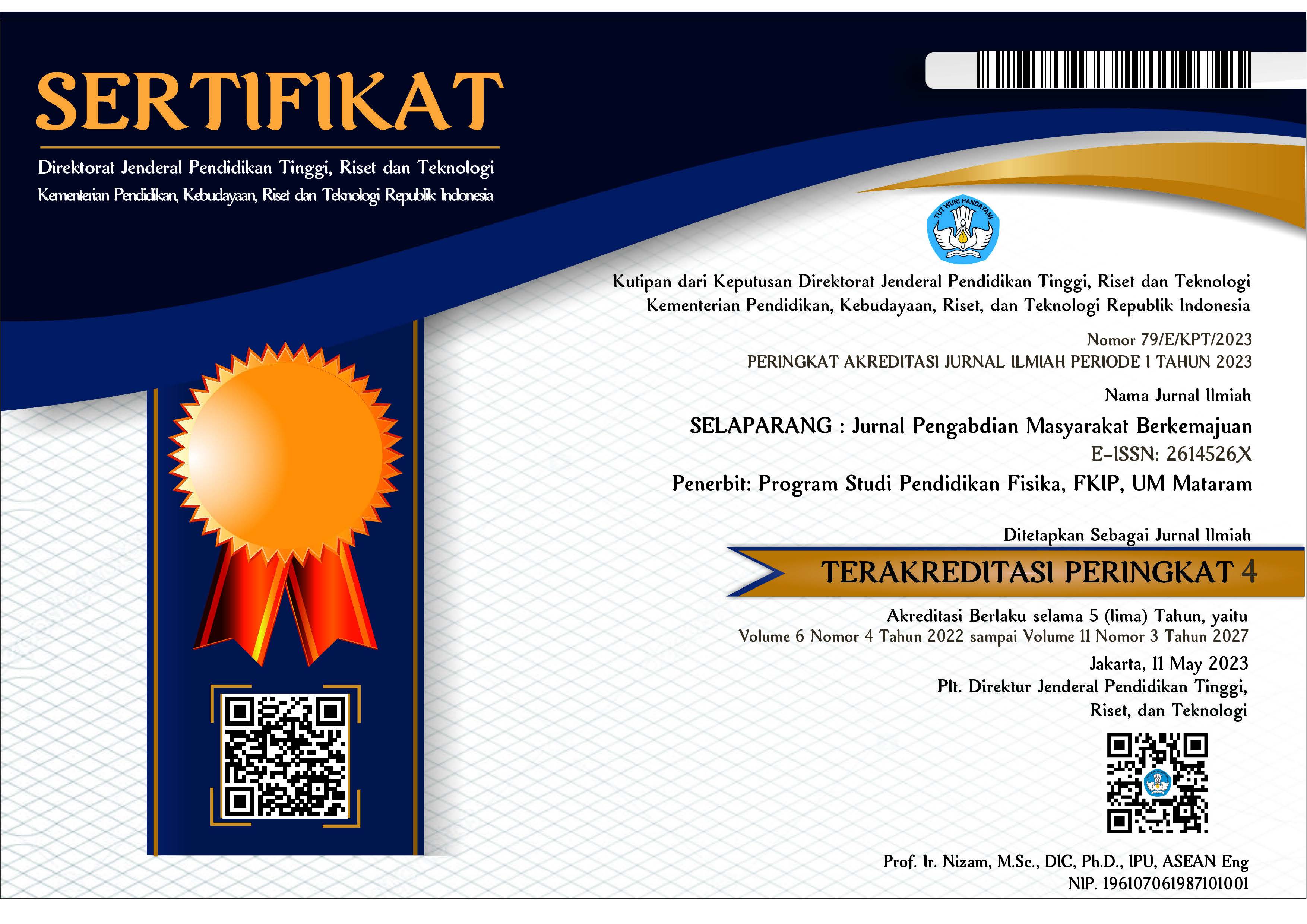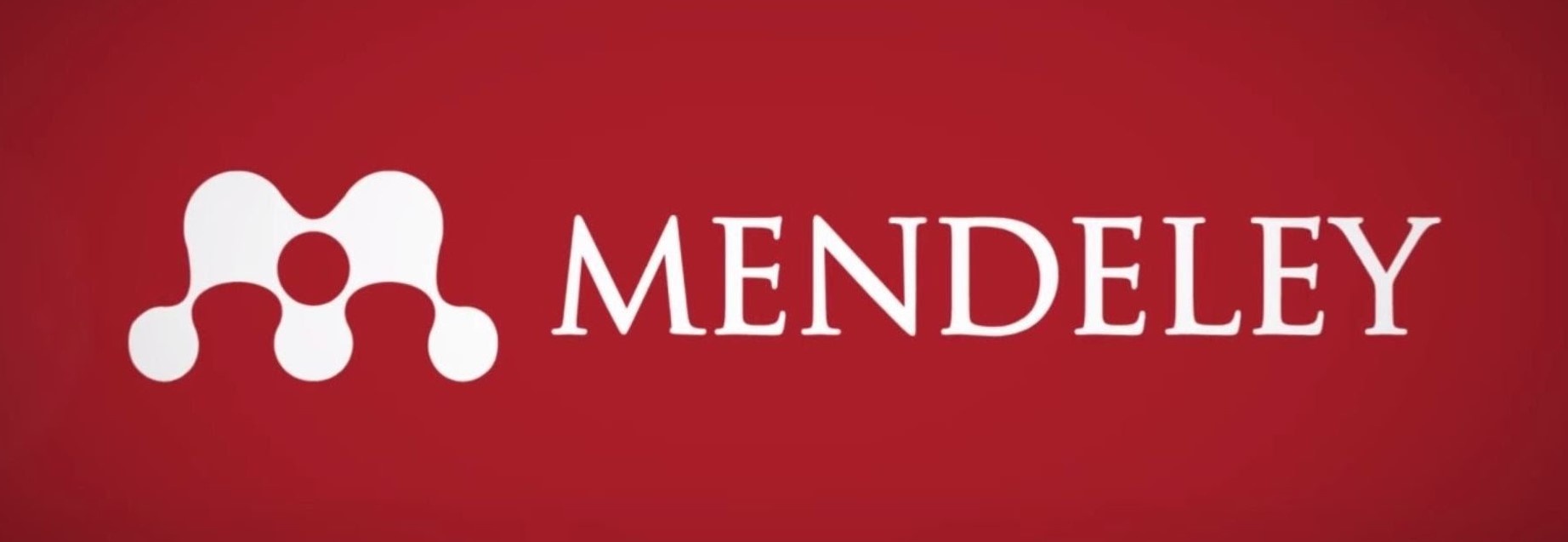Workshop metode project based learning bagi guru SMA negeri 12 Kupang
Abstract
Abstrak
Kegiatan Pengabdian Kepada Masyarakat (PKM) ini dilakukan untuk meningkatkan pengetahuan, pemahaman, dan kemampuan para guru dalam mengaplikasikan metode project based learning (PjBL) dalam kegiatan belajar mengajar di dalam kelas. Oleh karena itu, pelaksanaan metode dalam kegiatan PKM ini adalah metode sosialisasi, diskusi, dan bimbingan. Tahap pertama adalah metode sosialisasi dilaksanakan sebagai prosedur awal untuk pengenalan dan pendekatan dengan para guru SMA Negeri 12 Kupang. Selanjutnya, tahap kedua adalah metode diskusi yang dilaksanakan pada saat kegiatan sosialisasi. Hal ini berguna untuk mendapatkan respon atau pemahaman guru tentang metode PjBL. Tahap ketiga adalah metode pelatihan yang dilakukan dalam bentuk workshop yang bertujuan untuk melatih guru agar mampu menerapkan metode PjBL dalam proses kegiatan belajar dan mengajar.Tahap keempat adalah metode bimbingan yang dilaksanakan untuk mengarahkan dan melatih guru guna mengadopsi dan menerapkan metode PjBL dalam proses kegiatan belajar dan mengajar. PKM ini diikuti oleh 40 guru SMA Negeri 12 Kupang. Dengan demikian, melalui pelaksanaan kegiatan PKM ini, para guru memiliki pemahaman mengenai konsep metode PjBL dengan baik. Para guru juga mampu mengadopsi dan menerapkan metode PjBL dalam proses belajar mengajar. Di samping itu, para guru mampu menerapkan metode PjBL dengan prosedur yang tepat dan terstruktur.
Kata kunci: metode; problem based learning; workshop.
Abstract
This Community Service activity (CS) was carried out to improve the knowledge, understanding, and ability of teachers in applying the project based learning (PjBL) method on teaching and learning process in the classroom. Therefore, the method implementation of this CS activity is the socialization, discussion, and guidance method. The first stage is the socialization method carried out as an initial procedure for introduction and approach with teachers of SMA Negeri 12 Kupang. Furthermore, the second stage is the discussion method carried out during the socialization activity. This activity is useful for getting responses or understanding from teachers about the PjBL method. The third stage is the training method carried out in the form of a workshop that aims to train teachers to be able in applying the PjBL method in teaching and learning process. The fourth stage is the guidance method carried out to direct and train teachers in adopting and applying the PjBL method in teaching and learning process. This CS was attended by 40 teachers of SMA Negeri 12 Kupang. Thus, through this CS activity, teachers have a good understanding about the concept of PjBL method. Teachers are also able to adopt and apply PjBL method in teaching and learning process. In addition, teachers are able to apply the PjBL method with appropriate and structured procedures.
Keywords: method; problem based learning; workshop.
Keywords
Full Text:
PDFReferences
Darodjat & Wahyudhiana. (2015). Model evluasi program pendidikan. Islamadina: Jurnal Pemikiran Islam, 15(1), 1-23. https://doi.org/.10.30595/islamadina.v0i0.1665
Erfiani, Y. P. F., & Neno, H. (2017). The effect of project based learning method to improve second semester students’ vocabulary of english study program of timor university in academic year 2016/2017. Journal of Language and Language Teaching: SCIENTIA, 2(1), 25-34.
Erfiani, Y. P. F. (2017). The use of task based language teaching (TBLT) method to improve eflstudents’ speaking ability in presenting past experience. Journal of Language and Language Teaching: Scientia, 2(1), 1-14.
Erfiani, Y. P. F., & Neno, H. (2018). The effect of jigsaw method to improve efl students’ vocabulary ability. Metathesis: Journal of English Language, Literature, and Teaching, 2(2), 171-183. https://doi.org/10.31002/metathesis.v2i2.695
Erfiani, Y, P. F., & Neno, H. (2021). Workshop metode pengajaran task based language teaching bagi guru bahasa inggris smpn 2 insana. Jurnal Cendekia: Jurnal Pengabdian Masyarakat, 3(1), 36-42. https://doi.org/10.32503/cendekia.v3i1.1584
Kusuma, J. W., Arifin., Abimanto, D., Hamidah., Haryanti, D. Y., Khoiri, A., … Solong, N. P. (2023). Strategi Pembelajaran. Batam: Yayasan Cendikia Mulia Mandiri.
Martha, N. U., Wijayanti, D., & Andini, N. P. (2024). The effectiveness of project based learning models in teaching short story writing. Jurnal Bahasastra, 44(2), 309-324. https://doi.10.26555/bahastra.v44i2.991
Mislan, E. I. (2021). Buku Ajar Strategi Pembelajaran Komponen, Aspek, Klasifikasi, Dan Model-Model dalam Strategi Pembelajaran. Klaten: Lakeisha.
Nababan, D., Marpaung A. K., Koresy, A. (2023). Strategi pembelajaran project based learning. Pediaqu: Jurnal Pendidikan Sosial Humaniora, 2(2), 706-719. Dikutip dari https://publisherqu.com/index.php/pediaqu/article/view/178
Nuramini, A., Suri, D. R., Sofiani, I. K., Mudatsir., Susanti, T., Ritonga, S., … Asyura, I. (2024). Metode Pembelajaran Berbasis Kurikulum Merdeka. Jambi: PT. Sonpedia Publishing Indonesia.
P4M Polmed. (2022). Panduan Project Based Learning (PBL) & Case Based Learning. Medan: Author. Dikutip dari https://polmed.ac.id/wp-content/uploads/2022/11/BUKU-PBL-TTD_organized_compressed.pdf
Rambe, L. N., & Suganda, S. P. (2023). Implementation of project-based learning in english classroom of merdeka curriculum: student and teacher perception. Jurnal Lingua Didaktika, 17 (2), 196-206. Dikutip dari https://ejournal.unp.ac.id/index.php/linguadidaktika/index
Retnaningsih, L. K., & Khairiyah, U. (2022). Kurikulum merdeka pada pendidikan anak usia dini. SELING: Jurnal Program Studi PGRA, 8(2), 143-158. https://doi.org/https://doi.org/10.29062/seling.v8i2.1223
Susilo, J., Kusmana, S., & Anggreini, R. (2024). The effectiveness of the project based learning models assisted by audio visual media in writingopinion textsin vocational schools. Jurnal Bahasastra, 42(2), 259-273. https://doi.10.26555/bahastra.v44i2.1043
Wanglang, C & Chatwattana, P. (2023). The project based learning model using gamification to enhance 21st century learners in thailand. Journal of Education and Learning, 12(2). https://doi.10.5539/jel.v12n2p99
DOI: https://doi.org/10.31764/jpmb.v9i4.32005
Refbacks
- There are currently no refbacks.

This work is licensed under a Creative Commons Attribution-ShareAlike 4.0 International License.
______________________________________________________
Jurnal Selaparang
p-ISSN 2614-5251 || e-ISSN 2614-526X
EDITORIAL OFFICE:



















